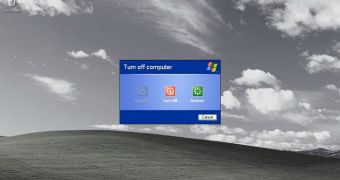Oracle has quietly stopped supporting Windows XP, so while future updates delivered for the Java platform will install just fine on this old operating system, they might not work as expected.
As a result, Windows XP users need to stay on an older version of Java and given the number of flaws found in the past in Oracle's software, there's no doubt that the security risks of being hacked are getting painfully bigger.
It's a well-known fact that Java has often made Windows users vulnerable to attacks, so needless to say, without further patches that could address security glitches found in the software, Windows XP users have no other option than to uninstall Oracle's application completely.
Security experts around the world are warning that staying on Windows XP and continuing running Java is a decision that makes computers even easier to hack, so the only solution in case the upgrade to another operating system is possible is to remove Java and stay away from applications and websites which are based on this particular software solution.
Mark Nunnikhoven, vice president for Cloud & Emerging Technologies at security firm Trend Micro, told V3 that Oracle's quiet end of support for Windows XP might put the final nail in Microsoft's old operating systems' coffin, as those still running it might finally decide that it's time to upgrade.
"For the end user, Oracle and others dropping support is frustrating and it means a lot of work to upgrade to a new operating system. From a security perspective, this just might be the motivation needed to move past an archaic platform and towards a more secure environment," he was quoted as saying.
Heimmdal Security CTO Morten Kjaersgaard added that Windows XP was anyway a vulnerable operating system since Microsoft wasn't providing security updates, so this new end of Java support makes things even worse.
"The operating system is inadequate to cope with today's security issues and I wouldn't call it safe to connect and use a Windows XP based machine on the Internet. With 3rd party software vendors ending their support as well, users who have not yet changed platform, really have to do so now," he explained.
And still, Windows XP remains the second most-used operating system worldwide, with a market share of 25 percent on the desktop. Stats clearly indicate that users might not switch to a different platform anytime soon, but there's no doubt that with so many software companies dropping support for Windows XP, time is running out for those who delay a decision.

 14 DAY TRIAL //
14 DAY TRIAL //